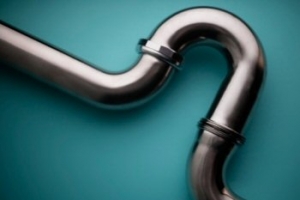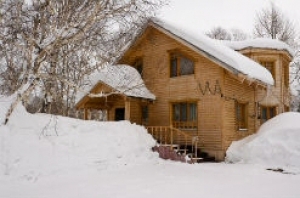 William M. Sparks 1945 - 2023
William M. Sparks 1945 - 2023
My father, William (Bill) Sparks, passed away sadly but comfortably Sunday morning, surrounded by his family. He was a kind and loving man with a heart of gold. There are so many who loved him and will feel this loss – in the business world and far beyond. He would say thank you to all of his small-business customer for their support, and he would wish everyone peace and happiness. I have run the William M. Sparks Insurance Agency for many years now, and I will continue to run it just as my father did and as he would want me to do. On behalf of my family, I thank you all for your kind words, well wishes and support at this time. --- Danielle Sparks
Every winter season, the pipes in your home are at risk of damage from freezing conditions. Low temperatures can cause your pipes to freeze, and in some cases burst. Encompass Insurance offers the following tips to safeguard your home before, during and after a pipe freezes.
Prevent Your Pipes From Freezing
- Disconnect all gardening hoses and install covers on all outside faucets.
- Keep your house temperature at 68 degrees or higher, even if you're leaving the house for an extended period of time.
- Open cabinet doors below sinks to allow heat from the home to circulate.
- Identify the location of the main water valve and the valve on your water heater. (Learning the location of these valves may come in handy during an emergency.)
- Wrap pipes nearest exterior walls and in crawl spaces with pipe insulation or with heating tape. This can prevent freezing, especially for interior pipes that run along outside walls.
- Close all windows near water pipes; cover or close open-air vents. Freezing temperatures combined with wind drafts can cause pipes to freeze more frequently.
- Heat your basement and consider weather sealing your windows.
- Insulate outside walls and unheated areas of your home.
- If you plan to be away from home for an extended period of time, shut off water supply valves to your washing machine.
Monitor Freezing Pipe Conditions
- Allow a faucet to drip slightly (lukewarm water) in order to minimize freezing.
- The first sign of freezing is reduced water flow from a faucet.
- Check your faucets for water flow and pressure before you go to sleep and again when you wake up.
- Check pipes around your water meter, in unheated areas, near exterior walls and in crawl spaces.
- These tend to be vulnerable to freezing conditions.
- Identify cold air drafts coming in from a flue or chimney chase and caulk gaps that are near pipes.
If a Pipe Freezes
- If a faucet or pipe inside your house freezes, you can thaw it using a good hair dryer. (For safety purposes, avoid operating a hair dryer around standing water.)
- To thaw a frozen pipe, heat water on the stove, soak towels in the hot water and wrap them around cold sections of the pipes.
- When thawing a pipe, start thawing it nearest to the faucet. Make sure the faucet is turned on so that melted water can drip out.
If a Pipe Bursts
- Shut off water at the main valve.
- If the break is in a hot water pipe, the valve on top of the water heater should be closed.
- Call a plumber. Keep an emergency number nearby for quick access.
Many winter-related disasters can be prevented if you take a few simple steps to protect your home from freezing temperatures, snow and wind. If you have not winter-proofed your home yet, the time is now.
The Insurance Information Institute warns that more than 10 percent of all catastrophic losses are the result of winter storms. They offer the following tips:
Winter Proofing the Outside your Home
- Clean out gutters. Remove leaves, sticks and other debris from gutters, so melting snow and ice can flow freely. This can prevent ice damming – a condition where water is unable to drain through the gutters and instead seeps into the house causing water to drip from the ceiling and walls.
- Install gutter guards. Available in most hardware and home stores, “gutter guards” prevent debris from entering the gutter and interfering with the flow of water away from the house and into the ground.
- Trim trees and remove dead branches. Ice, snow and wind could cause weak trees or branches to break – damaging your home or car, as well as injuring someone walking on your property.
- Repair steps and handrails. This may prevent someone from falling and seriously being injured. Broken stairs and banisters can become lethal when covered with snow and ice.
- Seal cracks in holes in outside walls and foundations. Use caulking to protect water pipes and make sure that skylights and other roof openings have proper weather stripping to prevent snowmelt from seeping in.
Winter Proofing the Inside your Home
- Keep the house warm. Set the thermostat for at least 65 degrees, since the temperature inside the walls, where the pipes are located, is substantially colder - a lower temperature will not keep the pipes from freezing.
- Add extra insulation to attics, basements and crawl spaces. If too much heat escapes through the attic, it can cause snow or ice to melt on the roof. Water can then re-freeze, causing more snow and ice to build up. This can result in a collapsed roof, and can contribute to ice damming. Ideally, the attic should be five to ten degrees warmer than the outside air. Well-insulated basements and crawl spaces will also help protect pipes from freezing. You may also consider insulating unfinished rooms such as garages to keep pipes from freezing.
- Have the heating system serviced. Furnaces, boilers and chimneys should be serviced at least once a year to prevent fire and smoke damage.
- Check pipes. Look closely for cracks and leaks and have the pipes repaired immediately. Wrap exposed pipes with heating tape.
- Install an emergency pressure release valve in your plumbing system. This will protect them against increased pressures caused by freezing pipes and can help prevent your pipes from bursting.
- Make sure that smoke and fire alarms are working properly. Residential fires increase in the winter, so it is important to protect your family with working alarm systems. Also, consider installing a carbon dioxide detector, since a well sealed home can trap this toxic gas.
- Learn how to shut the water off and know where your pipes are located. If your pipes freeze, time is of the essence. The quicker you can shut off the water or direct your plumber to the problem, the better chance you have to prevent pipes from bursting.
- Hire a licensed contractor to look for structural damage. If damage is discovered, have it repaired now rather than waiting for a problem to occur. Also, ask about ways to prevent water damage due to snow-related flooding. Plastic coatings for internal basement walls, sump pumps and other methods can prevent flood damage to your home and belongings.
Planning a Winter Vacation?
- If you are going to be away for an extended period, take special care.
- Turn the water off and/or have the water system drained by a professional to keep pipes from freezing or bursting.
- Arrange for someone to check your home on a regular basis so that, if there’s a problem, it can be fixed quickly to minimize any damage.
Don't Forget to Check Your Home Insurance
If you have not recently done so, be sure to check with your insurance agent to be sure that your Homeowners Insurance coverage is as complete as possible and that you're still receiving the best rate available. It's too late to do so after winter weather damage occurs.
Tag Cloud

|
|
 |





